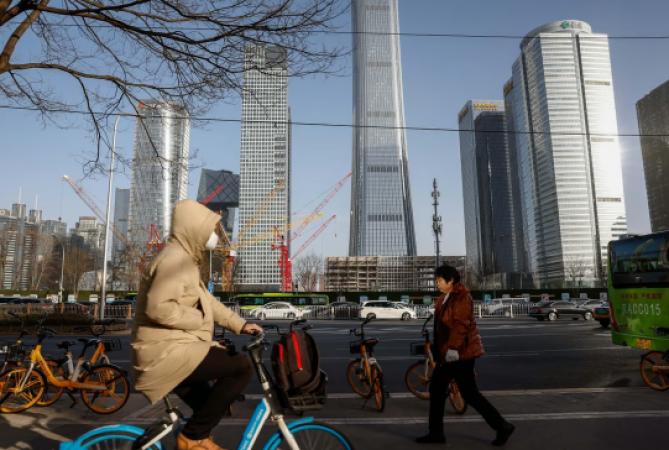
Beijing: Following its reopening, China is forecast to experience "stable and continuous" capital inflows as foreign investors increased their holdings in onshore yuan assets in January.
According to the State Administration of Foreign Exchange, foreign investors bought US$12.6 billion worth of stocks and bonds in the first fortnight of January, after doing so in December for US$15.7 billion (SAFE).
SAFE spokesperson Wang Chunying said on Wednesday that according to the latest market data, foreign investment in the domestic securities market has been active recently.
Also Read: Climate Crisis being the center of the session at the World Economic Forum
Amidst its economic downturn, aggressive US interest rate hikes, and market turbulence caused by Russia's invasion of Ukraine, China faced sustained pressure from capital outflows last year.
According to Wang, the domestic economy is likely to recover in the future, and we have the foundation and conditions for more stable cross-border capital circulation while maintaining a stable performance in the foreign exchange market. However, the external situation is still uncertain.
After its reopening, officials expect China to return to normalcy in 2022 with its economy growing by 3%. Beijing's strict virus controls negatively impacted the economy last year, recording its second worst growth in 46 years.
Wang predicted, "China's economy will grow rapidly, and yuan assets will appeal as a safe haven investment, supported by stable and ongoing foreign investment in Chinese securities markets."
The Chinese yuan has gained value against the US dollar during the past week as optimism grew about the country's economic prospects this year.
Beijing has also made regaining market confidence a top priority this year. Foreign companies and the private sector are concerned about the lack of policy predictability and certainty, which is hurting the appeal of the Chinese market as a top investment destination.
According to Wang, China will continue to develop a stable policy environment for international capital inflow and step up efforts to attract foreign investment.
Also Read: FTX claims that $415 million worth of cryptocurrency was stolen
According to Wang, the recent decline in inflation in most major advanced economies coincides with rising economic pressures, which may slow the pace of monetary tightening and slightly reduce the spillover effect.
The People's Bank of China's deputy governor, Xuan Changneng, said last week that the institution would appropriately handle shocks resulting from monetary adjustments in advanced economies.